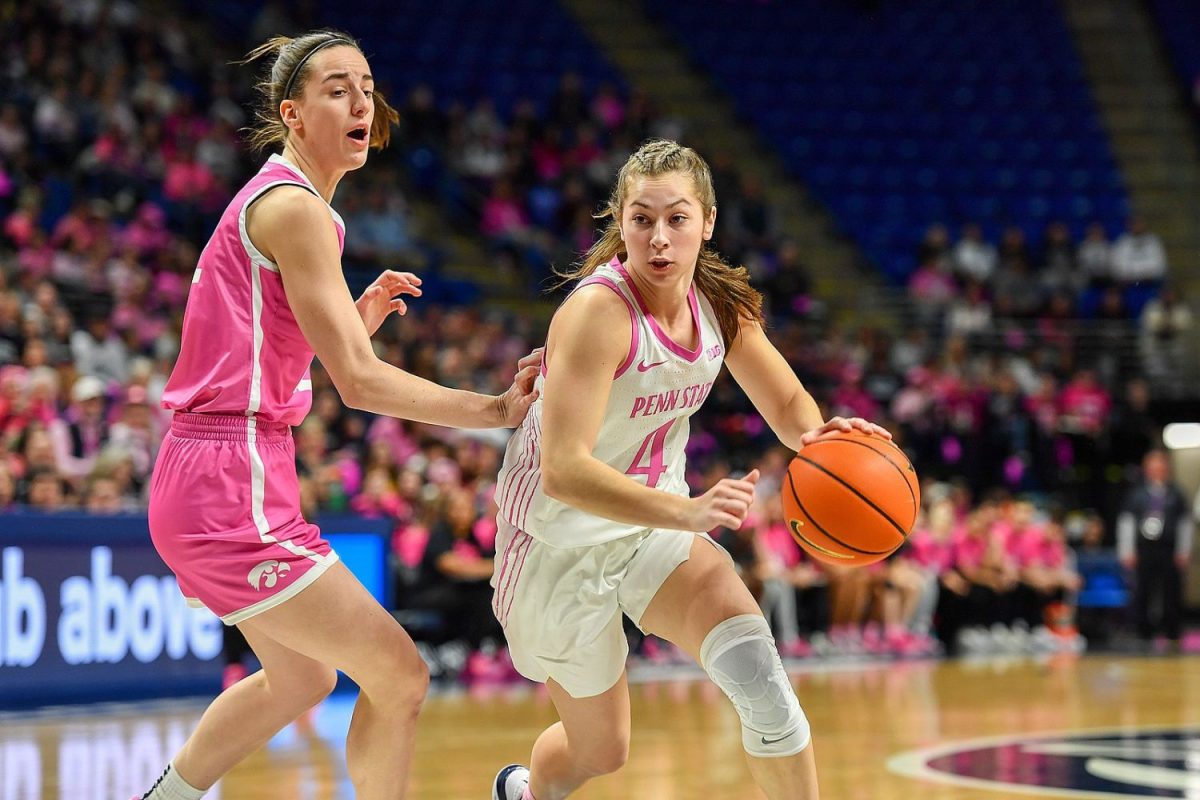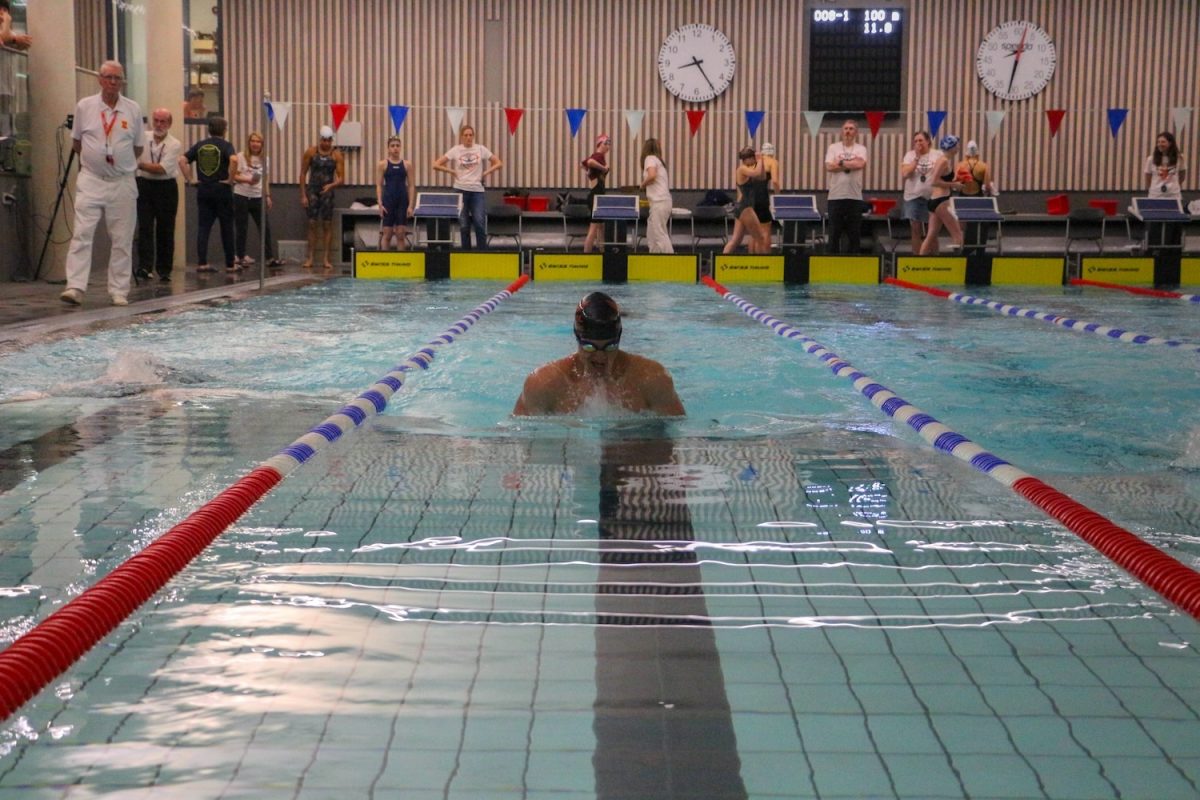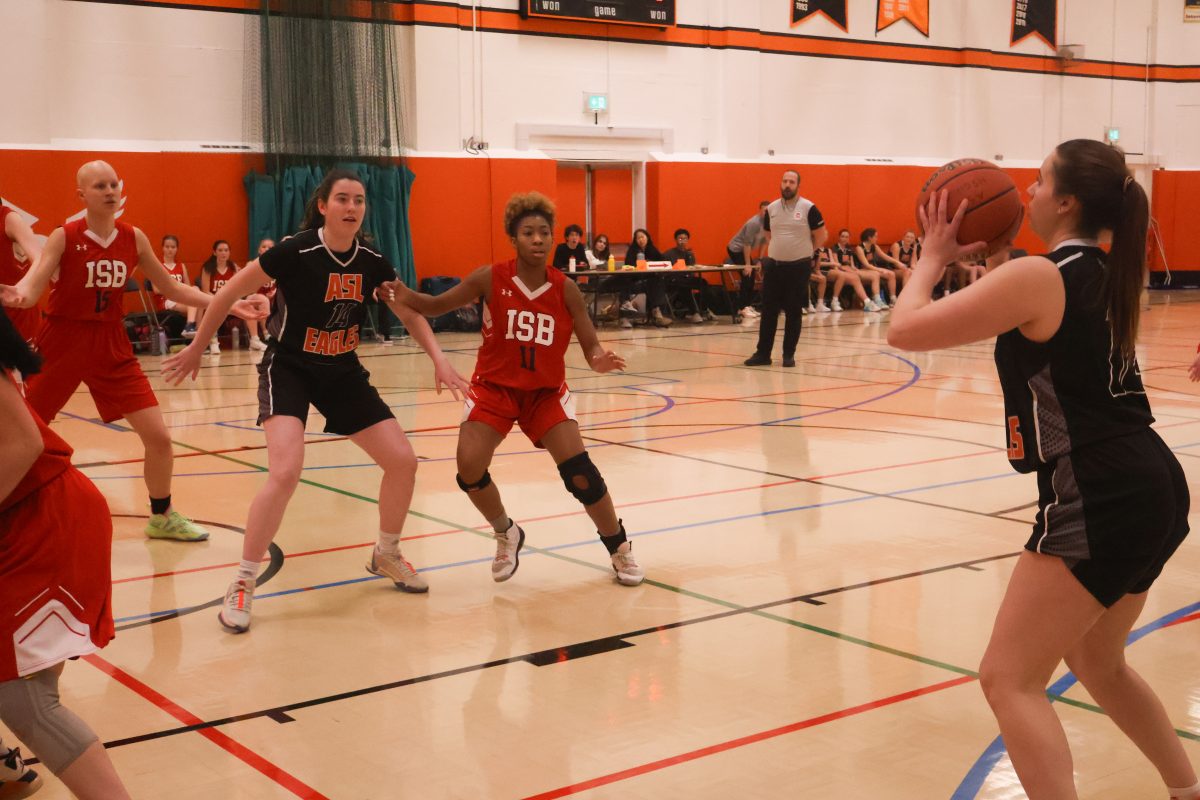All it takes is “one stupid moment”, as varsity rugby player PT Clement (’16) puts it, to ruin a season. Whether it’s purposely tripping an opposing player, cursing at fans, missing practice, or other infractions, one mistake during the season can potentially jeopardize an athlete’s involvement in the next game or practice, and call for further disciplinary actions.
Clement scored in the first two games against Cobham this year, which the varsity rugby team (Pirates) won. “It was important for me to do well,” he said. Losing by a significant margin in the third game against Cobham, Clement grew frustrated. Missing a tackle only compounded the problem, and resulted in him tripping his opponent to prevent him from scoring a try. Consequently, the referee brandished a red card.
Varsity Rugby Coach Ian Matthews attempted to diffuse the situation by moving Clement away from the bench onto a separate playing field. Using his knowledge of Rugby Football Union (RFU) policies, Matthews told Clement that he could be banned from ISSTs. “It made me very visibly upset… for him to basically take that all away from me in that moment – I wanted to play [in] ISSTs so badly, it was kind of shocking,” Clement said.
Afterwards, Athletic Director John Farmer and Clement met to discuss the situation. They discussed whether Clement acknowledged that his action was wrong, and if he grew from the incident or not – both of which Clement agreed upon.
While Clement was not suspended from ISSTs – far from it, he would win All-Tournament honors – he admits his meeting with Farmer prompted a frightening realization: The potential reality of not participating at ISSTs. “I have a feeling that if I was really definitively supportive of doing something dangerous on the rugby pitch that I wouldn’t be allowed [to play],” Clement said. “As long as I realized what I did was stupid, the Athletic Department wouldn’t take any action.”
Keen to play at ISSTs, Clement altered his mentality and interaction with the Athletic Department leading up to the tournament. “I had to be on my best behavior and everything just to make sure I got through my ISSTs,” he said. After ISSTs, he didn’t have to worry about acting differently with the Athletic Department and feels his relationship has returned to normal.
No defined protocol is in place for athlete discipline, but there is a section in the Coaches’ Handbook for managing discipline. Under this section, there are three main rules. The first forbids illegal and non-prescribed drug use. Outlawed in the Handbook is tobacco and alcohol use during school hours, or at school sponsored activities throughout the season. Inappropriate conduct such as bad sportsmanship, abusive or vulgar language and theft or defacing property is also prohibited.
According to the handbook, “Due to the possibility of degrees of rule transgression the Athletic Department reserves the right to adjust discipline as is deemed appropriate, however, athletes transgressing these rules will normally be suspended from play for the next two schedule games and should expect to be removed from their team at a second violation.”
Athletes have no such handbook, but Farmer, in tandem with High School administrators, hopes to form more “hard and fast” policies regarding discipline.
Farmer doesn’t believe lacking policies or a student handbook inhibits his ability to manage athletes and discipline them when needed. “I would like to think that despite the fact that there isn’t as much a procedural way of doing business that I have a very good understanding of what’s going on in teams with the students and what’s happening with our players,” Farmer said.
Varsity Baseball Coach Terry Gladis reports to Farmer if he knows of any infraction a player of his has committed. “Any violation, of any kind needs to be transferred on to the [Athletic Director],” he said.
Most often Farmer will seek assistance from Director of Student Life James Perry, Principal Jack Phillips and the Student Faculty Disciplinary Board (SFDB). He doesn’t find speaking to them necessary for all disciplinary issues, but requires them for all “egregious acts”.
Although involving other parties, Farmer, “to a great extent,” aims to keep such matters private “unless there’s a compelling reason to do so and even then I would check with a counselor.” However, he would inform an incoming coach of a player’s past so the coach would not be surprised if the player found himself in a similar situation.
Gladis prefers keeping the issues private for the athletes sake. He fears advertising a mistake would damage the team. “Let a young adult learn their lesson the right way instead of trying to make an even bigger mess out of [the issue],” he said.
In the practices following his game against Cobham, Clement noticed that his coaches changed their perspectives of him. “I think after that the coaches treated me more like a wildcard or a bit of a hothead, even though I didn’t think I was any more or any less calm than in the past,” he said.
Though his coaches treated him differently, his teammates suggested he move forward from the incident and he felt that they supported him.
“Heavy discipline”, Farmer believes doesn’t prohibit an athlete from returning to their sport and succeeding. “I feel very good about the fact that people have been given second chances in our athletics program,” Farmer said. “We’re here to help educate people and help them learn and they can’t learn if they’re not given a second chance.”
Jack Glen (’16) recovered from a disciplinary issue during the 2013-2014 school year that excluded him from basketball, starting for the varsity basketball team this season.
Leading up to basketball tryouts during the 2013-2014 school year, Glen remembers feeling sick, but continued playing. On the second day of tryouts, suffering from the flu, he left the gym during a drill without notifyig the coaches of his sickness. Upon returning, Gladis, a coach at the time, questioned why he left. Then Dean of Students and Head Coach Joe Chodl asked him to leave tryouts and to not return.
At the start of this year’s season, returning to the team proved neither easy nor straightforward for Glen. Both of the varsity basketball coaches, Rich Harris and Josh Davis, knew of the incident, even though Glen had never met head coach Davis. Despite the coaches’ knowledge of his previous actions, Glen believes he was given a clean slate during tryouts.
With some players whom he had a strong relationship with, Glen was given a fresh start, “but I think for the returning varsity players at the start there was a little bit of a hesitation,” he said. Relationships with those players healed over time and following a few practices and the team’s first game Glen didn’t feel it was
a problem.
Some teams, including the tennis teams, use player contracts to help with disciplinary problems. “Contracts can help articulate exactly what the expectations are of the athlete and what the outcomes will be for not following those expectations,” Farmer said.
Around seven years ago, Gladis used contracts for his baseball teams, but no longer feels the need to because of the “strong” Code of Conduct.
Over the summer, one of Perry’s priorities is reviewing the Code of Conduct and how it relates to athletics. Currently, the code lists examples of academic infractions, but not athletic ones. “If we’re going to list examples we should list examples beyond just the classroom,” Perry said.
However, academic violations overlap and can deny a student’s athletic engagement because of how their involvement in a sport contributes to those violations. “If there’s a situation where someone’s participation on a sport is… ultimately contributing to behavior that is either not allowed or really affecting them academically then that’s when an Athletic Director, a coach, a Director of Student Life might step in,” Perry said.
It’s not just students who stumble. “I’ve been around coaching a long time, 20 years and there have been times where I’ve seen people make mistakes and there have been times where I’ve made mistakes because you do get caught up in the heat of the moment,” Gladis said.
Farmer affords coaches less leniency than students. “People continually setting bad examples are people that we do not want coaching in our programs,” he said. “Our coaches, just like our teachers, need to be role models for our students.”
Eventually forms of both Clement’s and Glen’s stories spread. “A week or so after the event, a lot of people came up to me asking, what had happened to me, if I was suspended, if I was expelled, a lot of things were going around,” Glen said.
A season’s absence from basketball cultivated Glen’s appreciation for the sport and people vital for his enjoyment of the sport. “I now have a greater respect not only for the coaches and for my players and for the Athletics Department, but also for the game itself,” Glen said.
His personality and appreciation also developed in other areas. Before he would confront friends when they offered to help him, whereas now he accepts support from friends and teammates.
According to Farmer, the purpose for disciplining an athlete is for him or her to mature and to convey that actions worthy of punishment are not condoned by the Athletic Department. The latter applies to both ASL and the competing school. Farmer remains intent on openly communicating with other athletic directors, and will always notify them, for example, that an ASL player who tried to injure an opponent will be disciplined accordingly. “I wouldn’t want anyone to be under the impression that as an institution that we think it’s acceptable to do those sorts of things,” Farmer said.







